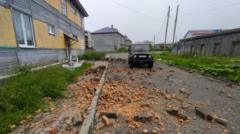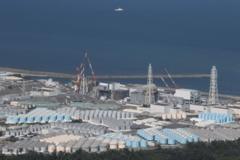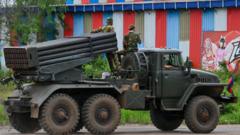Following a devastating earthquake that led to the collapse of a building in Bangkok, Thailand's authorities have arrested a Chinese national linked to the construction project. Investigations continue into possible violations of local business laws.
Thailand Arrests Executive in Connection with Deadly Building Collapse

Thailand Arrests Executive in Connection with Deadly Building Collapse
Authorities take action against foreign company officials after earthquake reveals construction irregularities.
The authorities in Thailand have detained a Chinese national, Zhang Chuanling, connected to a Chinese state-owned company responsible for the construction of a Bangkok building that collapsed during a recent earthquake, resulting in numerous casualties. The man was arrested in Bangkok following the issuance of warrants by a Thai court for four board members of the company, China Railway 10th (Thailand).
Zhang's arrest comes as public scrutiny intensifies regarding the safety of the construction project. He and the three other suspects are accused of violating the Foreign Business Act, which limits foreign ownership in local businesses. Authorities allege that the firm employed Thai individuals as proxies to maintain foreign control legally.
The Prime Minister of Thailand, Paetongtarn Shinawatra, has called for comprehensive investigations into projects undertaken by China Railway 10th amidst calls for accountability related to the tragic collapse. This particular building, a 30-story structure meant to accommodate the nation’s State Audit Office, has drawn attention due to the fact that the earthquake's epicenter was located over 600 miles away in neighboring Myanmar.
Casualty reports from the March 28 earthquake detail a death toll of 47 in Thailand, primarily due to the collapse, with 47 individuals still unaccounted for. While the project was a joint venture between China Railway 10th and an Italian-Thai firm, construction aspects were run mainly by the Chinese company.
Reports from construction workers and the anti-corruption watchdog indicate significant concerns regarding safety standards, with allegations of underpayment leading to the use of substandard materials in the building's construction. Furthermore, Thai officials discovered inferior steel components at the site, linking them to a factory previously closed due to quality issues.
Zhang is identified as holding a 49 percent stake in the controversial joint venture, but attempts to reach him for comments have been unsuccessful. The situation continues to evolve as responses from local and international stakeholders unfold.
Zhang's arrest comes as public scrutiny intensifies regarding the safety of the construction project. He and the three other suspects are accused of violating the Foreign Business Act, which limits foreign ownership in local businesses. Authorities allege that the firm employed Thai individuals as proxies to maintain foreign control legally.
The Prime Minister of Thailand, Paetongtarn Shinawatra, has called for comprehensive investigations into projects undertaken by China Railway 10th amidst calls for accountability related to the tragic collapse. This particular building, a 30-story structure meant to accommodate the nation’s State Audit Office, has drawn attention due to the fact that the earthquake's epicenter was located over 600 miles away in neighboring Myanmar.
Casualty reports from the March 28 earthquake detail a death toll of 47 in Thailand, primarily due to the collapse, with 47 individuals still unaccounted for. While the project was a joint venture between China Railway 10th and an Italian-Thai firm, construction aspects were run mainly by the Chinese company.
Reports from construction workers and the anti-corruption watchdog indicate significant concerns regarding safety standards, with allegations of underpayment leading to the use of substandard materials in the building's construction. Furthermore, Thai officials discovered inferior steel components at the site, linking them to a factory previously closed due to quality issues.
Zhang is identified as holding a 49 percent stake in the controversial joint venture, but attempts to reach him for comments have been unsuccessful. The situation continues to evolve as responses from local and international stakeholders unfold.



















